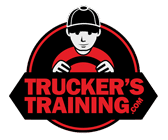No matter how excited you might be about going to truck driving school, you might also feel some trepidation. Maybe you’ve been out of school for a long time and are worried about the studying part, or maybe you’ve just turned 21 and are nervous about being around others who may have more experience or even their Class B CDL. Whatever the case, you’re probably not the only one who is feeling nervous. Anytime someone goes through a new situation, even when they really want to, it can cause a little stress. The good news is, we’ve got some tips to help calm even the strongest of nerves and help you to successfully get through truck driving school with flying colors.
Everyone has their Strengths
Some people are naturally good at school and others hate having to sit in a classroom. If you are comfortable taking notes and studying, consider offering your help to others. You may not need help in the future, but if you do, you’re likely to see your investment in others pay off when you need help the most. If you’re great at the driving portion of class, consider giving any tips or helpful hints to your fellow classmates. Not only will helping others open the doors to them helping you when you need it, but you might actually make some lasting friendships. The more people you stay in contact with over the years, the better chance you have at getting a new job if you’re ever looking for a change in employment.
Get a Jump Start
Once you’ve been accepted to CDL school, get your books or training manuals as soon as you can. Start looking everything over and if something seems like it’s going to be tough, put a little time into it. This doesn’t mean try to learn it necessarily, just become familiar with what the subject is and the definition of words. This will make it easier when the time comes for this section of the book.
Memorize with Mnemonics
If you have been out of school for a long time, you may look at all you need to know and just cringe. Oftentimes, the people who learned to study well are the ones who did the best in school. But if you were never a good student, it may be time to learn about mnemonics. Mnemonics is a way of learning material that uses a variety of different ways to help you retain as much information as possible. If you think back to when you learned your ABCs, chances are you started by singing them. This is a form of mnemonics.
There are nine different forms of mnemonics, so pick the best (or even a few of them) that work good for you. You may have to play around with them to find what works, but these methods have been proven tried and true for students in all disciplines, from pre-school teachers to medical students.
- Model mnemonics
If you need to learn what’s under the hood, the best way is to get in there and get dirty. If you’re being quizzed on parts of the truck and how to do a pre-trip inspection, go over the list while you’re actually doing it. You can even build a small model of what you’re studying out of inexpensive clay to help you learn the different parts you need to know. - Note mnemonics
Let’s say you’re sitting in class taking notes. When you get home or have a break, rewrite your notes in an outline form, with the most important points being a header for the other points. Not only will rewriting the information make it stick better in your head, but when you have time to study, you’ll remember to study the most important items first. - Image mnemonics
You probably remember geography while in school and learning about Europe. The easiest country to learn was always Italy because it’s shaped like a boot. If you come up with shapes that remind you of something else, this one can easily help you. - Music mnemonics
Like the ABCs you learned as a child, if you set something to music, you’re more likely to retain it. Pick your favorite songs and change the lyrics. Unlike the melody you’re singing to, you don’t have to worry about rhyme. - Name mnemonics
Most people used this in grade school to learn the various colors of the rainbow. ROYGBIV was short for Red, Orange, Yellow, Green, Blue, Indigo, Violet. You can do the same type of name mnemonic to remember a certain set of things or to remember how to do something in a certain order. - Word mnemonics
You may or may not remember having to learn about conjunctions in school, but to remember For, And, Nor, But, Or, Yet, So, many kids learned them by remembering FANBOYS. One simple word gives you the clue to all the pieces combined. - Ode mnemonics
Some people may find this silly, but creating an ode to something can really work. For example, “Dear Third Gear, I love you always when you help me…” and list all the situations in which you should be in that gear. If you can manage to make it rhyme, chances are you will learn it even faster. - Connection mnemonics
This is a simple form of remembering something you already know and adding to it. When you connect information you already know with something you’re trying to learn, it can make it easier. - Spelling Mnemonics
The final mnemonic is used for spelling, so it doesn’t necessarily pertain to truck driving school. However, if you want to work on spelling for any written tests or quizzes, simple statements like I before E, except after C can help you spell a little better.
Put in the Time
No matter what aid you use to study, there is no replacement for the amount of time you study. Go into truck driving school knowing it may take up a lot of your free time on top of going to school full time. Even though that may sound tough right now, it will pay off in the end. Not everyone passes CDL school the first time they get tested, so putting in the time up front will mean less having to put time in later. You’ll also graduate when you plan to and be able to find a job doing what you love that much faster. So skip anything that’s not truly important and if you have to, give up television or any other diversion. Remember, it’s not forever.
Get Your Zzzzzs
Sleep is crucial for anyone who is under stress. Lack of sleep can contribute to being grumpy, having an impaired immune system (making it hard to fight off colds or illness), and being unable to concentrate. The last thing you need when in truck driving school is to not be able to concentrate. So make sure to get at least seven to nine solid hours of sleep to perform at your best, although this is true for life, not just during school.
Maintain a Healthy Lifestyle
While it may be easy to head down to the local fast food restaurant to grab a bite for lunch, this can wreak havoc on your body. Instead, consider taking your lunch and pack it with healthy, fresh food instead. The time you save by not having to drive to get lunch may leave you enough time to go for a quick walk. This can help to keep you awake during class and you’ll feel better overall. Your body will thank you in the short and long term.
If possible, consider working out a little more strenuously during the week. Truck drivers are notorious for having back problems after being on the job for years, so consider doing some core exercises to strengthen your stomach (abdominal), sides (obliques), and butt (gluteus maximus) muscles. These muscles all help to keep your body in proper alignment and working them out will serve you well for years to come.
Also, make sure that you have appropriate attire to avoid injury, such as having the proper work boots, clothing and equipment.
Look to a Brighter Future
No one ever said heading back to school for a new career would be easy, and it might not be. Remember to focus on your goal of becoming a CDL driver and that your hard work will pay off in the end. Currently, there are a wide range of jobs for OTR drivers, and one of them will be yours soon. So put in the hard work, enjoy your time in school, learn as much as you can, and make connections with other students. With the proper work ethic and drive to finish, you will succeed at your goal of becoming a CDL driver.

Geoff is a freelance writer at TruckersTraining.com with 20+ years of experience driving trucks and buses, dispatching, supervising, and training commercial driving teams. His expertise is writing topics on the transportation and trucking industry, and information technology trends.


